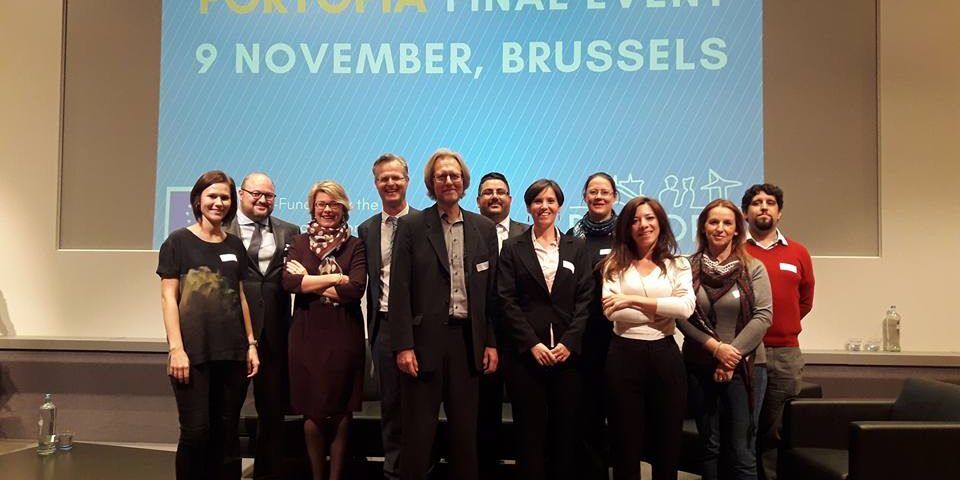PortEconomics members, who have contributed to the development of the PORTOPIA project, shaped the final event of the project that was held in Brussels on 9 November 2017.
The PORTOPIA project, which started in 2013, is aimed at the development of key performance data for European ports and the accompanying ICT tools facilitating data collection and analysis, assisting the industry in moving towards a more sustainable and competitive port system. The project has received funding from the European Union’s Seventh Framework Programme for research, technological development and demonstration.
During a day of high-level interaction, the project partners presented the four main tools that resulted from the PORTOPIA project, i.e. the Rapid Exchange System+, the environmental dashboards, port governance trends, and a user perception measurement tool. Furthermore, during panel discussions, EU port professionals debated about the added value of the project and the lessons to be taken from it, as well as the priorities for the future.
During this event – which according to the European Sea Port Organisaation (ESPO) “must be seen as a milestone in the data digitalisation agenda of the European port sector” – a second panel discussion focused on the global state-of-play of port performance measurement. With this event, the European port industry has proven that EU Research and Innovation projects can lead to sustainable results.
Part of the output of the project in terms of indicators and insights in several perspectives, is presented in the new 2017 EU Port Industry Performance Report. Furthermore, the ESPO Environmental Report 2017 presents the updated results for the year 2017 of the European ports’ environmental performance.
PortEconomics member Michaël Dooms, who has been the project coordinator said: “Beyond the statistics and the indicators, this project has foremost dealt with creating a culture of transparency and trust, as well as value-creating technologies to deal with performance and analysis. It therefore creates a solid basis for further developments highlighting the performance of the European seaport industry to their stakeholders, supporting better relations and improved strategic decision-making on the individual, regional and international level when it comes to the management of port infrastructure and services.”
At its General Assembly, the European Sea Ports Organisation (ESPO) gave the green light to invest in the continuation of the data digitalisation process and further develop the PORTOPIA platform.












